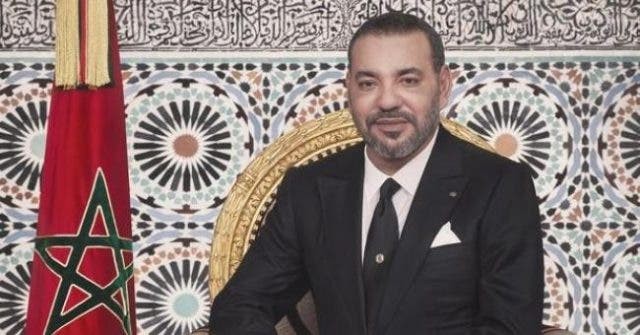By Hanane Thamik

King Mohammed VI of Morocco
The Feast of the Throne is an opportunity to remember the pioneering achievements experienced by Morocco under the reign of King Mohammed VI, to salute the major changes that have taken place over the past twenty-two years. It is also an opportunity to review the many reforms and initiatives launched under the leadership of King Mohammed VI, in Morocco which has succeeded in combining modernity and authenticity, becoming a model followed in several areas.
This year’s Feast of the Throne is marked by the launch of the huge project to design the new development model, by the establishment of the Integrated Business Support and Financing Program, and also implementation of the generalization of social protection and other regional development projects (economic, social, cultural and sporting), as well as the management of the crisis linked to the Covid-19 pandemic.
New development model: a vision for the future of Morocco by 2035
At the instigation of King Mohammed VI, a Special Commission on the Development Model was set up to define the country’s strategic orientations for the development of Morocco by 2035. A New Development Model was presented to the King on May 25, 2021, which lists the issues, priorities, and how to achieve the expected change.
Prosperity, empowerment, inclusion, sustainability, and regional leadership, are the development objectives set by the Special Commission on the Development Model.
The participatory approach of the commission made it possible to make a diagnosis of the situation of the country, as it is perceived by the citizens and the stakeholders, highlighting the achievements and also the expectations and aspirations.
Having interacted directly with 9,719 people and 20.3 million people via social networks, the members of the Commission devoted part of the report to the concerns and proposals of citizens, which are mainly related to the quality of public services, the access to economic and employment opportunities, and the anchoring of the principles of good governance.
Education, health, transport, and opportunities for openness and development, particularly through culture and sport, are the main areas that crystallize the expectations of citizens, who according to the report of the New Development Model, must be understood in terms of the quality of the offer and accessibility under favorable conditions.
Based on its many assets (geographical positioning, cultural heritage, religious values in harmony with human values, as well as the strong and secular links between the monarchy and the people), Morocco of 2035 will be, according to the Special Commission, a force capable of facing challenges and crises at regional and international dimensions, and of transforming its repercussions into opportunities for the development of the country.
Translating the concept of responsibility and development developed by the King in the 2019 Throne Speech, this commission advocates a new organizational doctrine. It is a question of complementarily between a “strong and just state and a strong and dynamic society”, reflecting the singularity of the development model of the Kingdom where “the monarchical institution is the keystone of the state”. The Moroccan monarchy is a symbol of the unity of the Nation, guarantor of balances, bearer of the vision of development and long-term strategic projects, and the monitoring of their execution in the service of citizens.
The new roadmap tends to put an end to multiple dysfunctions and to propel Morocco, in different areas by 2035, in the top third of the world ranking nations. The challenges are listed, but also the issues, the priorities as well as the way to achieve the change to which all Moroccans aspire in an ambitious, organized, calm and united country.
The challenge for the Morocco of tomorrow is therefore to make a real break not only with the old development model, which has shown its limits but above all with the bad practices that have until now undermined the country’s development.
Generalization of social security for all Moroccans
The “Moroccan development strategy” places solidarity at the center of its interests. Therefore, His Majesty King Mohammed VI launched in April 2021, the generalization of social security for all Moroccans, including health insurance, membership to pension plans, and family allowances. This plan will further contribute to social cohesion and increase the purchasing power of all Moroccans.
This major Royal project will initially benefit farmers, artisans and crafts professionals, traders, professionals, and independent providers, and secondly, other categories with a view to the effective generalization of social protection to all citizens.
This societal project constitutes a real social revolution, which will have direct and tangible effects on the improvement of the living conditions of citizens and the preservation of the dignity of all Moroccans.
The implementation of this large-scale project represents a lever for integrating the informal sector into the national economic fabric, to guarantee the protection of the working class and its rights, as well as a decisive turning point on the road to the achievement of balanced development and socio-spatial justice.
The Kingdom of Morocco: gateway to Africa and Europe
Thanks to a multitude of free trade agreements concluded in particular with the USA, EU, and several countries in the MENA region, Morocco provides privileged access to a market of more than 1 billion consumers.
The quality of the Kingdom’s infrastructures is a comparative advantage in its attractiveness for foreign investment. Morocco has thus succeeded in establishing itself as an international maritime hub, thanks to Casablanca port, Dakhla port, and Tangier-Med, the first African and Mediterranean port in terms of capacity.
The United Nations Conference on Trade and Development (UNCTAD) ranked Morocco 1st African country and 24th worldwide, in terms of maritime connectivity. Morocco is also first in Africa in terms of infrastructure quality, according to the 2019 Global competitiveness index.
According to the Global Financial Centers Index of 2020, Morocco is the best financial center in Africa. The resilience of this sector has been one of the main reasons behind the success of Morocco’s economy in absorbing the consequences of the Covid-19 shock.
Management of the repercussions of the Covid-19 pandemic on the economic, financial, and social levels
Thanks to the visionary leadership of His Majesty King Mohammed VI, Morocco has undertaken a proactive and inclusive strategy to face the health, economic and social repercussions of the Covid-19 pandemic, by implementing a series of far-reaching measures to ensure the safety of Moroccan citizens.
Raised as an absolute priority since the start of the pandemic in February 2020, the management of the health crisis has been the first concern of His Majesty King Mohammed VI who has placed the health of Moroccans at the forefront, in parallel with measures to boost the national economy.
This particular episode in the history of humanity will therefore have marked the years 2020 and 2021, but the world will remember the Moroccan particularity to manage this crisis under the leadership of His Majesty King Mohammed VI.
The corona virus pandemic has plunged the world economy into uncertainty and deep recession. In Morocco, a very ambitious economic recovery plan was launched in October 2020 by HM the King, under which 13.5 billion USD, an equivalent of 11% of the national GDP, will be injected into the Moroccan economy.
The cornerstone of this plan is Mohammed VI Strategic Investment Fund, which will play a leading role in promoting investment and fostering national economy capacities. It will finance and support the major ongoing projects, particularly in the fields of industry, innovation, SMEs, infrastructure, agriculture, and tourism.
Regarding the sector of industry, Morocco has set a 3-year plan starting 2021, to strengthen the national industry and to ensure a rapid and efficient economic recovery. This plan comprises three main strategies:
1. Confirming Morocco’s industrial leadership, by generating 5.7 billion USD on the trade balance and creating up to 100,000 jobs;
2. Improving the country’s competitiveness to promote great economic and industrial agility;
3. Positioning the country as a low-carbon industrial base, particularly through encouraging the use of renewable energies in the industry.
The agriculture sector is also at the center of this recovery plan, as it is expected to generate an investment volume totaling 4.3 billion USD in the medium term, with an annual benefit equivalent to two additional points of GDP. This plan will supply around 1 million hectares of agricultural land for the benefit of investors.
During this period of a global health crisis, thanks to the collective effort, led under the wise leadership of His Majesty King Mohammed VI, Morocco was able to mitigate the impact of the pandemic on the economic and social plans and avoid the worst like that has been affirmed by reports from several national institutions and international organizations.
Indeed, the report of the African Development Bank praised the measures taken by the Kingdom, which made it possible, among other things, to avoid a 6% shortfall in growth and to preserve 71% of jobs that were compromised.
Morocco’s successes in the anti-Covid 19 vaccination campaign
Start on January 28, 2021, and by receiving the first dose of the vaccine, His Majesty King Mohammed VI sent a strong message on the importance of vaccination against this virus which still claims many victims in the world. The Kingdom has worked hard to make this large-scale campaign a success.
Following high royal instructions, the vaccination campaign is free for all citizens. The main goals is to immunize all the Moroccan people (30 million to vaccinate approximately 80% of the population), to reduce then to eliminate cases of contamination and death due to the epidemic and to contain the spread of the virus, with a view to a gradual return to normal life.
This national campaign is taking place gradually and in installments and benefits, all Moroccan citizens and residents aged 17 and over. On the date of June 28, 2021, nearly 9.9 million Moroccans have been vaccinated at least once and 8.9 million have received both doses of the vaccine.
The campaign, initially targeting those over 75 and healthcare professionals, quickly expanded to those over 40. Morocco is far ahead of other African countries, even though it now faces the widespread challenge of vaccine supply.
As vaccination campaigns stall in several countries, Morocco has been able to acquire millions of doses, which has enabled it to expand target populations for vaccination. Making appointments easier, the good organization of the campaign, the monitoring of vaccinated populations are all factors that have so far contributed to the success of this action.
In addition, a vast awareness campaign was launched to encourage citizens to register for vaccination. The Moroccan Ministry of Health has, moreover, made available to citizens a web portal (www.liqahcorona.ma) which offers updated information on the vaccine and which allows them, among other things, to report any adverse event that may be related to the vaccine.
Since June 2021, Morocco has adopted new measures related to Covid-19 to ease restrictions on the mobility of travelers, to and from the Kingdom. This gradual easing of lockdown was adopted, taking into consideration the dangers associated with the pandemic, as well as the measures necessary to protect the country and its citizens.
Hanane Thamik is a Ph.D. scholar and author of CGTN Africa. She has 18 publications among them the 5000-MILE REPORT “Africa’s international relations: What’s in store for the next decade?” which was handed to high-ranking officials at the Ministry of Foreign affairs in Beijing.
 Africa -China Review Africa -China Cooperation and Transformation
Africa -China Review Africa -China Cooperation and Transformation
